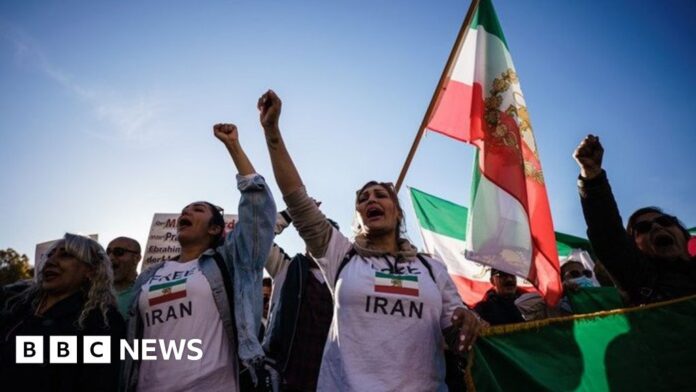The anti-government protests sweeping Iran are now in their eighth week, with no sign of ending, despite a bloody crackdown. The rest of the world has watched with alarm, with some countries taking steps in support of the protests.
The protesters first want to be heard and get news coverage by the world’s media. The Iranian government has taken steps to minimise this as much as possible. For instance, foreign correspondents there (the BBC and others are banned) are not permitted to report the protests, film them or even take pictures.
As a result, citizen journalism and posting videos of protests on social media are key to getting the news out. But the government tries to stop this also. According to internet monitoring group NetBlocks, during the last seven weeks, the internet in Iran has often been shut down or massively interrupted.
At the same time, 32 journalists have been arrested, according to the International Federation of Journalists, and the two remaining social media apps, Instagram and WhatsApp, have been blocked.
Opposition figures and civil society activists continuously call for more pressure on the regime to stop the violence and to hold it accountable. According to rights groups, more than 300 people, including at least 41 children, have been killed since the protests started.


